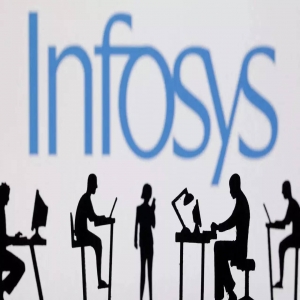
.jpg) Aakash
Aakash

Narayana Murthy's name is synonymous with Infosys. Many in India claim he is one of the great figures who has brought the country to the global stage. However, the "70-hour work week" controversy perfectly encapsulates Murthy's disconnect from contemporary workplace realities.
Ask any software developer worth their money, and they will tell you otherwise. When asked to sincerely evaluate the company, the first reviewer, who was a company employee, said, and I quote, "But the total management is the worst of all. They don't even have skills, don't know the working knowledge, and do not know the team properly." Actual reviews on global platforms are even worse.
His call for young Indians to work longer hours while he enjoyed the fruits of wealth accumulated through the labour of others struck many as deeply hypocritical. This is particularly jarring given that Infosys built its fortune on the outsourcing model, profiting from wage arbitrage between Western and Indian markets. Employers in developed countries want to avoid being obligated to pay locals a high salary. They would rather have shoddy work done and receive payment than deliver quality products. It had nothing to do with Narayana Murthy and everything to do with luck, and he was at the right place at the right time for the jackpot to fall into his lap.
Murthy's suggestion must be analysed objectively to be fair to the man. He fallaciously assumes that productivity is directly proportional to hours worked. However, global evidence debunks his notion. With their shorter workweeks and robust social safety nets, Scandinavian countries consistently rank high on productivity indices. Norway boasts one of the shortest average work weeks at just 27 hours, yet it ranks second-most productive country globally. These nations show that efficiency stems from innovative policies and healthy work environments — not merely from more extended hours.
He patriotically claims that we must work for the nation's development. I must ask why his daughter lives in luxury in London and is not slaving away in the country whose poor he milked and fed her. Most employees at lower rungs are not paid justly, even for their work, as getting someone new for cheap and replacing them regularly is easy. Why would anyone work more to provide him even more wealth? He lost all respect when he claimed that Modi works hard. If the PM's work is fabulous, let us all get out and burn the country to the ground because that is all he is doing. If travelling to foreign countries and making a few incendiary speeches is work, I can introduce people who would love doing just that.
Let us be honest. Murthy, and for that matter, no one ever became wealthy due to their own hard work. If everyone was paid their due, everyone would be at the same economic standard. People only become rich by exploiting others. When he speaks of increasing the work time, he probably needs to remember how often he refuses to pay for his employees' work and overtime and hike their salaries. He can get away with this due to India's current demographic. We are at a point in time when unemployment, especially among the youth, is at an all-time high. Many would do anything to get a job, no matter how pathetic the condition is.
Murthy's leadership style, characterised by his media presentations as principled, increasingly appears authoritarian and outdated on a second look. His interference in Infosys's management long after stepping down as chairman created instability and contributed to the resignation of CEO Vishal Sikka in 2017. His inability to relinquish control was evident, a common failing among founder-patriarchs who view their companies as personal fiefdoms rather than public institutions.
The celebrated simplicity of his lifestyle is actually carefully crafted personal marketing. While preaching austerity and demanding sacrifice from others, Murthy's family has amassed enormous wealth, including through ventures like Catamaran that have benefited from preferential access to deals and networks built through Infosys's influence.
His criticism of India's work culture appears particularly tone-deaf coming from someone whose company primarily served Western clients during their standard business hours, effectively forcing Indian employees to work shifts aligned with US time zones. This practice, which Infosys helped normalise, has contributed significantly to work-life balance challenges in India's IT sector.
The disconnect between Murthy's stated principles and actions extends to his views on entrepreneurship. He is one of the reasons that India is seen as a cheap sweatshop. While publicly advocating for Indian entrepreneurship, under his leadership, Infosys focused primarily on services rather than product innovation. This has perpetuated India's image as a low-cost service provider rather than an innovation hub.
Perhaps most concerning is Murthy's apparent resistance to changing times. His recent comments suggest a mindset frozen in the scarcity-driven 1990s, failing to recognise that today's young professionals seek purpose and balance alongside financial success. His inability to acknowledge the evolving nature of work in a digital age undermines his credibility as a thought leader in technology.
Murthy's carefully built reputation for ethical leadership now appears increasingly questionable. While preaching corporate governance, his interventions in Infosys post-retirement violated those principles. His criticism of golden handshakes for departing executives while his family benefits from generational wealth highlights a double standard in his ethical framework.
Murthy's positions and actions suggest someone who has failed to evolve with the times, clinging to outdated notions of sacrifice and success while enjoying the privileges his wealth affords.